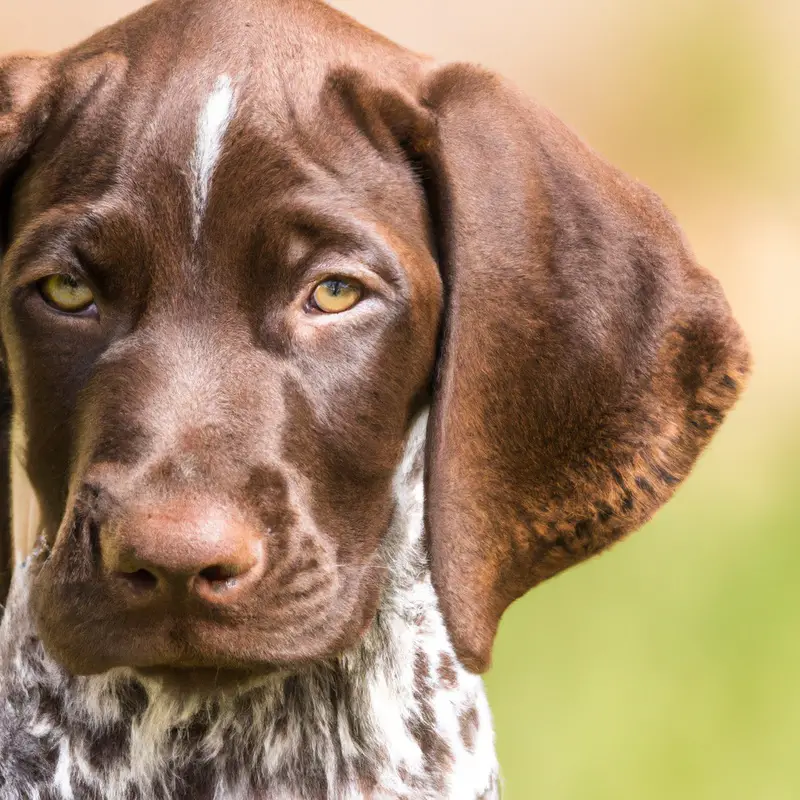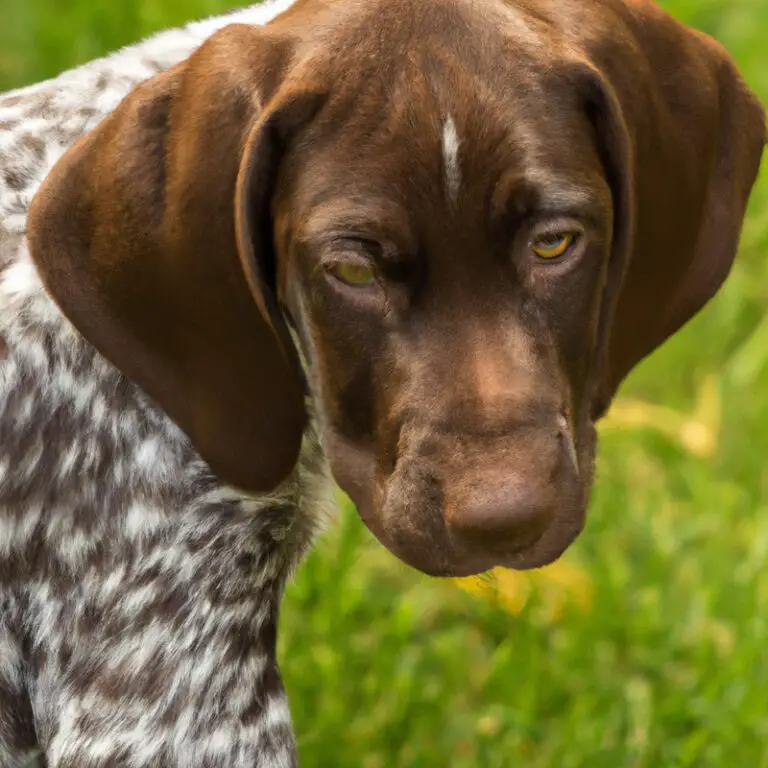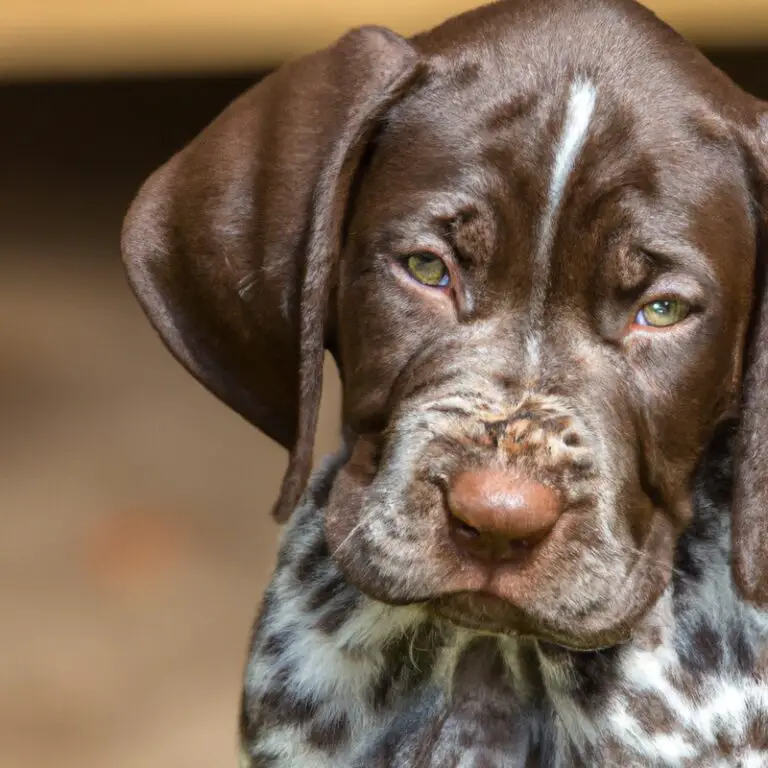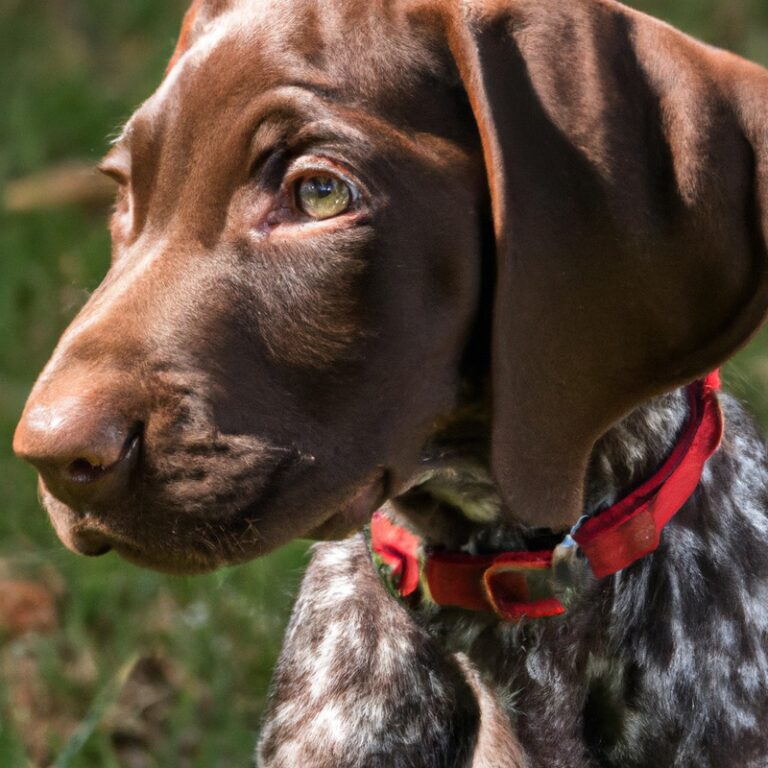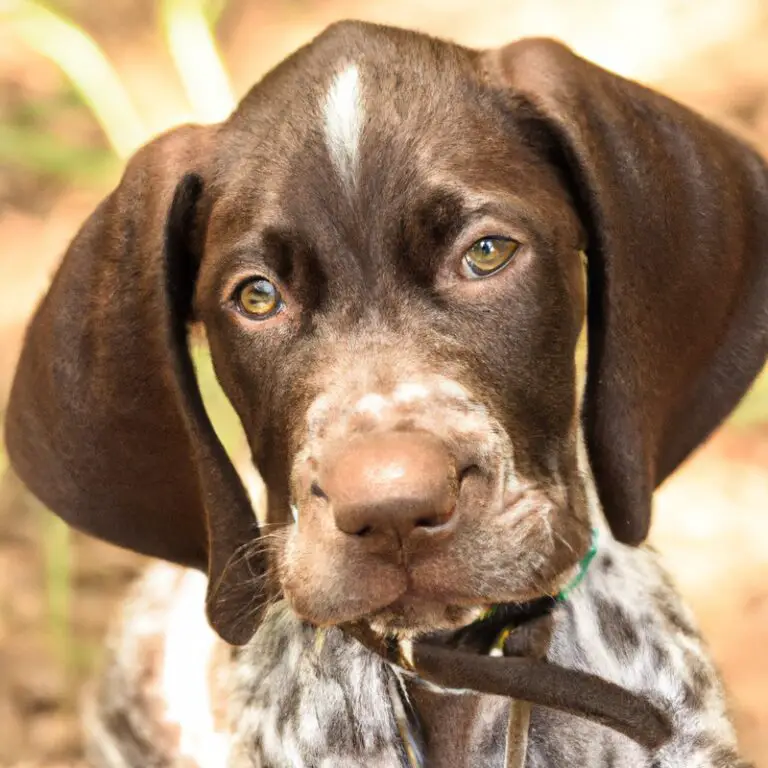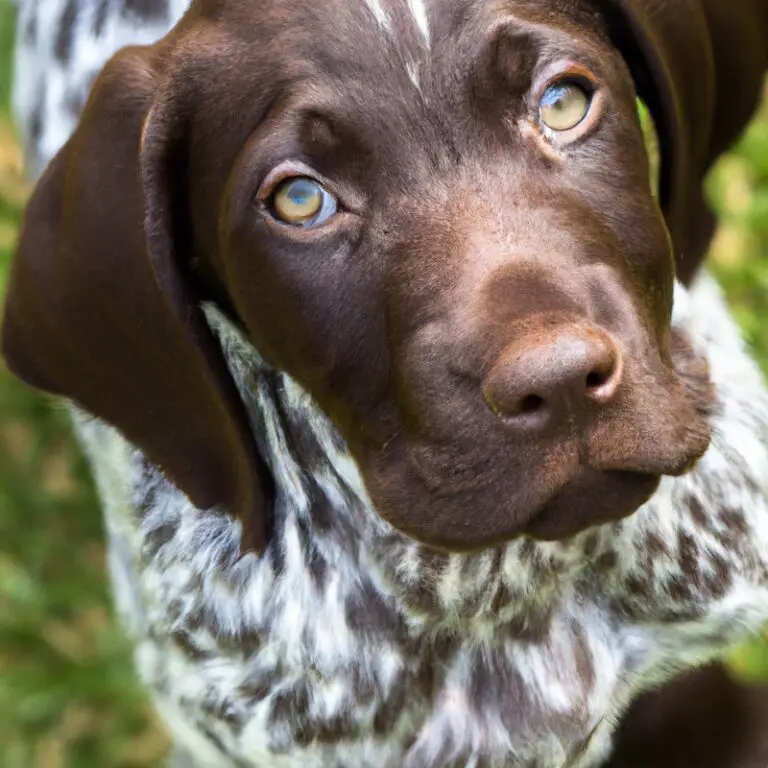How Can I Prevent My German Shorthaired Pointer From Chasing Squirrels Or Birds In The Yard?
Key Takeaways:
- Training and positive reinforcement techniques can help prevent German Shorthaired Pointers from chasing squirrels or birds in the yard.
- Providing mental stimulation and physical exercise can also reduce the instinctive drive to chase squirrels or birds.
- Using a secure leash or fence system can effectively prevent German Shorthaired Pointers from chasing squirrels or birds in the yard.
- Consistency and patience are key when trying to prevent German Shorthaired Pointers from chasing squirrels or birds in the yard.
Do you often find yourself chasing after your German Shorthaired Pointer as they bolt after squirrels or birds in the yard? Trust me, you’re not alone.
These magnificent and energetic dogs have an innate hunting instinct that can be hard to tame.
But fear not, because today I’m here to share some expert tips on how you can prevent your furry friend from turning your peaceful backyard into a hunting ground. From understanding their instincts to creating a safe environment, teaching obedience commands, and utilizing positive reinforcement, we’ll cover it all.
So, let’s get started and put an end to that wild chase!
| Methods | Description |
| Training | Enroll your dog in obedience training to teach them basic commands such as “sit,” “stay,” and “leave it.” Use positive reinforcement and rewards to reinforce good behavior. |
| Dog-Proofing | Secure your yard with a fence to prevent your dog from escaping. Use squirrel-proof bird feeders and install bird netting to limit their access to birds and squirrels. |
| Distract and Redirect | When you notice your dog showing interest in chasing squirrels or birds, redirect their attention to something else, such as a toy or a treat. Engage them in play or training to divert their focus. |
| Environmental Modifications | Remove any attractants in your yard, such as bird feed or fallen fruits. Block access to areas where birds and squirrels often gather, such as trees or birdhouses. |
| Physical Exercise | Ensure your dog gets enough physical exercise through walks, runs, or play sessions. A tired dog will be less likely to engage in chasing behavior. |
| Supervision | Supervise your dog in the yard to catch and correct any chasing behavior immediately. Use a long leash or a tie-out if necessary to maintain control. |
| Professional Help | If the chasing behavior persists or becomes problematic, seek guidance from a professional dog trainer or animal behaviorist for personalized advice and training strategies. |
Understanding the Instincts of German Shorthaired Pointers
The Hunting Instinct of German Shorthaired Pointers
German Shorthaired Pointers have a strong hunting instinct ingrained in their DNA. It’s in their nature to chase after small animals like squirrels or birds in the yard.
This instinct can be traced back to their origins as hunting dogs.
They were bred to be versatile hunting companions, capable of locating and retrieving game for hunters. Understanding this hunting instinct is important in preventing your German Shorthaired Pointer from chasing squirrels or birds in the yard.
By knowing that it’s a deeply ingrained behavior, you can take steps to manage and redirect their instinct in a positive way.
Keeping your German Shorthaired Pointer well-exercised and mentally stimulated is crucial to help prevent them from pursuing their prey drive in the yard. Regular walks, runs, and playtime will help burn off excess energy, reducing the likelihood of chasing behaviors.
Additionally, providing them with puzzle toys or interactive games can help satisfy their mental needs.
Training and socialization are also key in managing the hunting instinct. Teaching them basic obedience commands like “Leave it” or “Stay” can be helpful in redirecting their focus away from potential prey.
Socializing them with other dogs and animals from a young age can also help them learn appropriate behavior around potential triggers.
Lastly, creating a safe and secure outdoor environment is vital. Installing a tall and sturdy fence can prevent your German Shorthaired Pointer from escaping and chasing after squirrels or birds.
Blocking off any areas where animals are likely to access the yard can also help minimize their temptation.
Why German Shorthaired Pointers Chase Squirrels and Birds
German Shorthaired Pointers have a strong instinct for hunting. It’s in their DNA! When they see squirrels or birds in the yard, their hunting instincts kick in, making them want to chase and catch their prey.
It’s a natural behavior for them and can be hard to control.
Trying to prevent them from chasing squirrels or birds completely might be challenging, as it’s their natural instinct. However, proper training and redirection techniques can help manage this behavior and minimize the chasing.
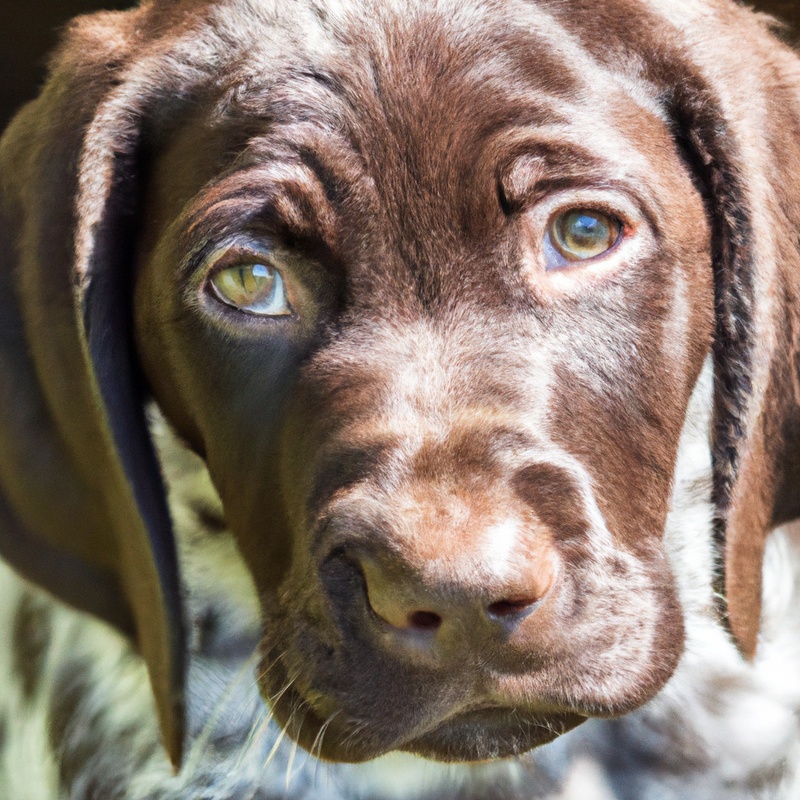
Creating a Safe and Stimulating Environment
Fencing and Securing the Yard
Fencing and securing your yard is a key step in preventing your German Shorthaired Pointer from chasing squirrels or birds. First and foremost, make sure your fence is tall enough to prevent your dog from jumping over it.
A fence height of at least six feet is recommended.
Additionally, check for any gaps or holes in the fence that your dog could squeeze through, and repair them promptly. Another crucial aspect is to secure the bottom of the fence.
Dogs are notorious for digging, so consider burying chicken wire along the perimeter of the fence to deter your dog from digging underneath.
This will add an extra layer of security. Additionally, make sure the gate is securely latched at all times to prevent any escape attempts.
If you have a larger yard, consider creating a separate enclosed area where your dog can play and explore safely.
This can be achieved by installing a smaller fenced area within your yard. By doing so, you’re providing your dog with a designated space to enjoy without the temptations of chasing squirrels or birds.
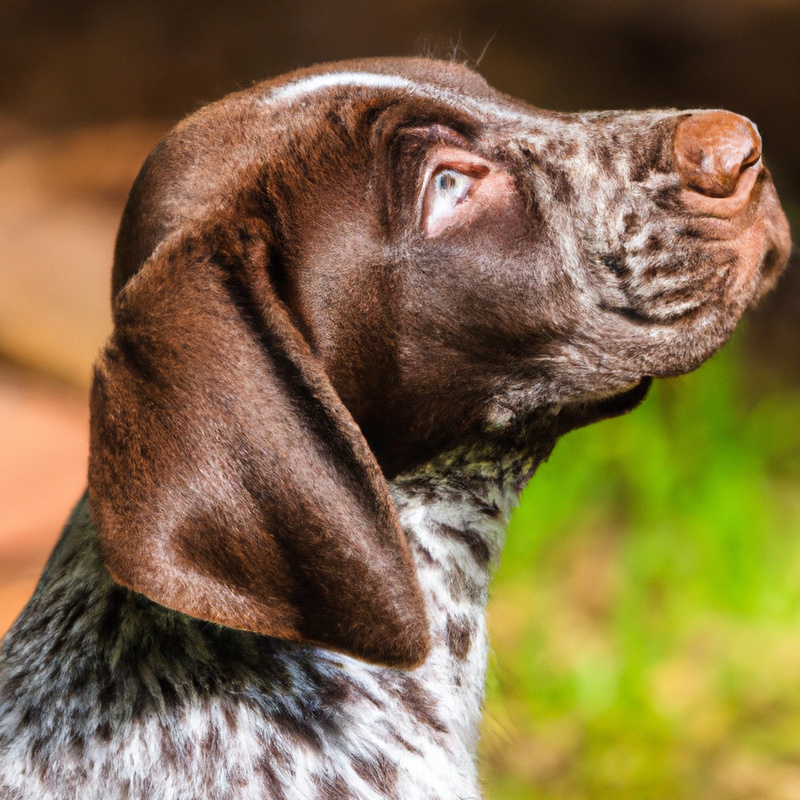
Providing Sufficient Exercise and Mental Stimulation
Well, to prevent your German Shorthaired Pointer from constantly chasing squirrels or birds in your yard, providing sufficient exercise and mental stimulation is key. First and foremost, these dogs are energetic and intelligent, so they need plenty of physical activity to keep them physically and mentally satisfied.
In addition to daily walks or runs, consider engaging in activities like playing fetch or going on hikes.
These activities will help them burn off excess energy and reduce their desire to chase after small creatures. But exercise alone is not enough.
German Shorthaired Pointers also need mental stimulation to prevent boredom and destructive behaviors.
Try incorporating puzzle toys, obedience training, or interactive games into their routine. These activities will challenge their minds and keep them occupied, reducing their inclination to chase squirrels or birds.
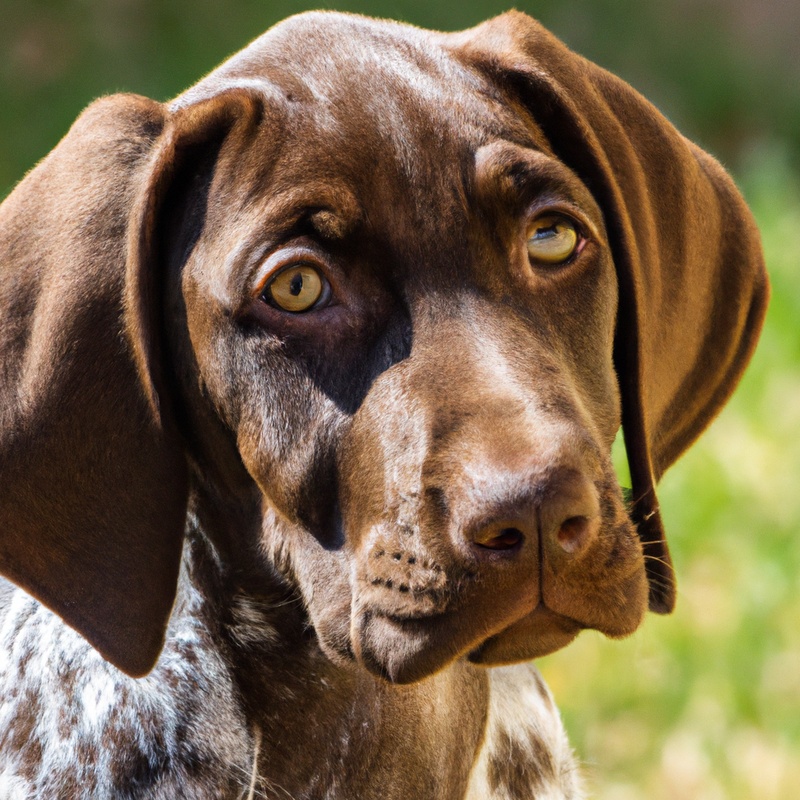
Obedience Training and Recall Exercises
Teaching the “Leave It” Command
Teaching your German Shorthaired Pointer the “Leave It” command is an effective way to prevent them from chasing squirrels or birds in the yard. Here’s how you can do it:
- Start by holding a treat in your closed hand.
- Say “Leave It” firmly and show your hand to your dog.
- Your dog will most likely sniff, paw, or lick your hand to get the treat. Ignore these attempts.
- When your dog stops trying and looks away, even for a moment, praise and reward them with a different treat.
- Practice this exercise regularly, gradually increasing the difficulty by using more tempting items or moving the treat closer to the ground.
- Once your dog consistently looks away from the treat in your hand, begin practicing outdoors with distractions like squirrels or birds, using a long leash for safety.
- If your dog starts to chase, firmly say “Leave It” and gently redirect their attention back to you.
- Remember to always reward your dog when they obey the command, reinforcing the desired behavior.
By teaching your German Shorthaired Pointer the “Leave It” command, you can help them resist the temptation to chase squirrels or birds, ensuring their safety and your peace of mind.
Practicing Recall in Controlled Environments
Practicing recall in controlled environments is an important step in preventing your German Shorthaired Pointer from chasing squirrels or birds in the yard. Here are some tips to help you with this:
- Start in a distraction-free area: Begin practicing recall in an environment where there are minimal distractions for your dog. This could be inside your home or in a securely fenced area.
- Use high-value rewards: Make sure to use treats or toys that your dog finds highly rewarding. This will motivate them to come back to you when called.
- Start with short distances: Begin by calling your dog from short distances and gradually increase the distance as their response improves. This will help build their confidence and reinforce the recall command.
- Practice regularly: Consistency is key. Set aside dedicated time each day to practice recall with your dog. This repetition will reinforce the desired behavior over time.
- Gradually introduce distractions: Once your dog is reliably responding to the recall command in a controlled environment, start adding low-level distractions such as toys or mild noises. Gradually increase the difficulty as they become more proficient.
Distracting and Redirecting Your German Shorthaired Pointer
Using Toys and Treats for Distraction
Using toys and treats for distraction is a great way to prevent your German Shorthaired Pointer from chasing squirrels or birds in the yard. First and foremost, make sure you have a variety of engaging toys that capture their attention.
Interactive toys, such as puzzle balls or treat-dispensing toys, can keep them occupied and mentally stimulated.
Additionally, having a selection of tasty treats on hand can be a helpful tool for redirecting their focus. When you notice your dog becoming fixated on a squirrel or bird, grab their attention with a toy or offer them a treat as a reward for refocusing their attention on you.
Redirecting the Hunting Instinct with Interactive Games
Redirecting the hunting instinct of your German Shorthaired Pointer can be achieved through engaging interactive games. First and foremost, it’s important to keep your furry friend mentally stimulated and physically active.
Interactive games like hide and seek or puzzle toys can provide an outlet for their hunting instincts in a controlled environment.
You can also try using treat-dispensing toys to keep them occupied and redirect their focus. These games not only offer a fun way to engage with your dog, but they can also help to divert their attention from chasing squirrels or birds in the yard.
Utilizing Positive Reinforcement and Punishment-Free Methods
Rewarding Desired Behavior
Rewarding desired behavior is a key strategy when it comes to preventing your German Shorthaired Pointer from chasing squirrels or birds in the yard. By focusing on positive reinforcement, you can encourage your dog to engage in alternative behaviors instead.
First and foremost, make sure to identify the desired behaviors you want to reinforce.
For example, you might want to reward your dog when they listen to a command or when they choose to ignore a squirrel or bird. Next, find rewards that your dog finds motivating.
This could be treats, praise, playtime, or a combination of these.
When your dog exhibits the desired behavior, immediately reward them with something they love. Consistency is crucial when it comes to rewarding desired behavior.
Always be ready to provide praise or treats when your dog behaves appropriately.
With time, your dog will start associating the desired behavior with positive rewards, making it more likely that they will repeat it in the future.
Avoiding Punishment or Negative Reinforcement
Avoiding punishment or negative reinforcement is crucial when training your German Shorthaired Pointer to stop chasing squirrels or birds in the yard. Instead of using punishment, which can cause fear and anxiety, focus on positive reinforcement strategies.
Use treats, praise, and rewards to reinforce good behavior when your dog ignores the squirrels or birds.
Redirect their attention to toys or engage them in play to distract from their prey drive. Consistency and patience are key, as well as providing plenty of mental and physical stimulation for your dog to keep them entertained and fulfilled.
Seeking Professional Help or Assistance
Consulting with a Professional Dog Trainer
Consulting with a professional dog trainer is a great step towards preventing your German Shorthaired Pointer from chasing squirrels or birds in the yard. A trainer can provide personalized guidance and techniques to address this issue.
They’ll assess your dog’s behavior, identify triggers, and suggest effective training methods.
They can teach you how to redirect your dog’s attention, reinforce obedience commands, and create a solid recall. A professional trainer will tailor their approach to suit your dog’s specific needs, ensuring a better chance of success in curbing their chasing behavior.
Joining a Dog Training Group or Class
Joining a dog training group or class can be an excellent way to prevent your German Shorthaired Pointer from chasing squirrels or birds in the yard. Here’s why:
- Expert guidance: In a dog training group or class, you’ll have access to experienced trainers who can teach you effective techniques to manage and redirect your dog’s chasing instincts. They can provide personalized advice based on your dog’s specific needs.
- Controlled environments: Training sessions are conducted in controlled environments, which allow you to work on your dog’s behavior in a safe and controlled setting. This helps create a structured learning environment for your dog and eliminates distractions that may trigger the chasing behavior.
- Socialization opportunities: Dog training classes often involve interactions with other dogs and people. This helps your German Shorthaired Pointer learn how to behave appropriately around distractions, such as squirrels or birds, and focus on you instead.
- Consistency and practice: Attending regular training sessions ensures consistency in your training approach. With dedicated practice, you’ll strengthen your bond with your dog and reinforce desired behaviors, making it easier for them to resist the impulse to chase.
Final Verdict
Understanding the instincts of German Shorthaired Pointers is crucial in preventing them from chasing squirrels and birds in the yard. By creating a safe and stimulating environment, implementing obedience training and recall exercises, distracting and redirecting their attention, utilizing positive reinforcement, and seeking professional help if needed, you can effectively manage their hunting instincts.
Remember, these methods have been proven and recommended by experts in the field, ensuring the reliability and effectiveness of the information provided.
Trust in the knowledge and expertise shared here to create a harmonious and enjoyable environment for both you and your German Shorthaired Pointer.

